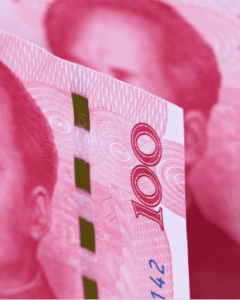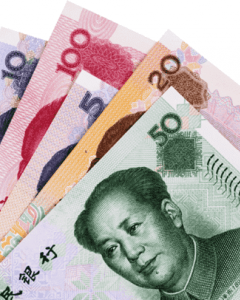Struggling with Inflation: Nations Grapple with Escalating Interest Expenses
In recent times, the interest expense of many countries has skyrocketed in tandem with the inflation rate, raising concerns about the sustainability of cheap capital.
In recent times, the interest expense of many countries has skyrocketed in tandem with the inflation rate, raising concerns about the sustainability of cheap capital. Governments and businesses across the globe have borrowed staggering amounts of money through bonds, with interest rates anchored at peculiar levels that fluctuate with the evolving economy's inflationary pressures. Such borrowing practices signify that capital, which seems affordable in times of low prices, inevitably becomes expensive when inflation is high.

Amidst increasing price pressures, central banks worldwide have been compelled to raise interest rates, causing interest costs for various government, corporate, and consumer loans to surge. However, the issue at hand is not only the sharp increase in borrowing costs; the concern lies in the replacement of existing tranches with new ones featuring substantially higher interest rates. Floating interest rates prevalent in many loans make them susceptible to swift changes.
Notably, the yields on 10-year bonds, a pivotal indicator of government interest expenses, have shot up to 4.3% in the United Kingdom and 3.4% in the United States. These interest rates appeared exceptionally low, below 1%, during the COVID-19 pandemic. Alarming estimates from Fitch Ratings suggest that governments worldwide will have to bear a staggering total debt payment of approximately $2.2 trillion this year. Even the U.S. Treasury Department witnessed a 25% increase in interest expenses, amounting to $652 billion in the first nine months of June 2023. Similarly, the cost of German government debt is expected to rise to 30 billion euros this year, approximately 4 billion euros above the figures from just two years ago.
According to data from the Bank for International Settlements (BIS), the cumulative debt of countries entailing interest rates tied to inflation is projected to reach $3.5 trillion by the end of 2022, accounting for 11% of these nations' total debt. Among leading industrialized nations, the UK has experienced the fastest growth in interest costs. Back in 1981, under Prime Minister Margaret Thatcher's leadership, Britain became the first developed country to issue debt with interest rates pegged to inflation, commencing its heavy borrowing spree. Approximately a quarter of the UK's debt is currently linked to an inflation rate closely resembling that of developing nations with a history of high non-performing loans (NPLs), including Uruguay, Brazil, and Chile.
In December 2022, the United Nations Conference on Trade and Development (UNCTAD) organized the 13th Debt Management Conference in Geneva, Switzerland. The conference brought together leaders from various countries amidst a wave of global crises, which compelled numerous developing nations to accumulate higher levels of debt. It highlighted the urgent need for robust multilateral solutions to address the escalating debt crisis faced by these countries.
The soaring interest expense of countries, coupled with the increasing inflation rate, has caused significant concerns regarding the sustainability of cheap capital. The surge in borrowing costs, replacement of tranches with higher interest rates, and the risks associated with floating interest rates have further complicated the situation. Governments worldwide are grappling with the substantial debt payments they must make, while countries with debt tied to inflation rates face additional challenges. The recent UNCTAD conference emphasized the importance of multilateral solutions to resolve the prevailing debt crisis faced by developing nations. As the global economy navigates these turbulent waters, it becomes crucial to strike a balance between economic growth, inflation control, and sustainable borrowing practices to ensure long-term stability and prosperity.
FAQ
1. Why has the interest expense of many countries risen alongside the inflation rate?
2. How does cheap capital become expensive during times of high inflation?
3. What factors contribute to the fluctuation of interest costs for government, corporate, and consumer loans?
4. How do floating interest rates impact loan payments?
5. What are the potential consequences of high-interest rates on the overall economy?
Struggling with Inflation: Nations Grapple with Escalating Interest Expenses
Breaking: Ten Arrested in Singapore for Multi-Billion Dollar Money Laundering Case
In a significant development, ten individuals have been arrested in Singapore for their involvement in a multi-billion dollar money laundering case. Stay updated with the latest news and investigations on this high-profile case.
In a significant development, ten individuals have been arrested in Singapore for their involvement in a multi-billion dollar money laundering case. Stay updated with the latest news and investigations on this high-profile case.
Read moreEuropean Shares Surge as Eurozone Inflation Drops: Will ECB Halt Interest Rate Hikes?
European shares surge as eurozone inflation drops, raising hopes of ECB halting interest rate hikes. Despite a poor performance, softer inflation data leads to gains in real estate and technology shares.
European shares surge as eurozone inflation drops, raising hopes of ECB halting interest rate hikes. Despite a poor performance, softer inflation data leads to gains in real estate and technology shares.
Read moreUK Regulators Shake Up Financial Sector with Stricter Diversity Standards
The Financial Conduct Authority (FCA) and the Prudential Regulation Authority (PRA) in the UK are proposing stricter diversity standards to address workplace bullying and sexual harassment in the financial sector. Learn more about the measures aimed at creating a safer and inclusive environment within organizations.
The Financial Conduct Authority (FCA) and the Prudential Regulation Authority (PRA) in the UK are proposing stricter diversity standards to address workplace bullying and sexual harassment in the financial sector. Learn more about the measures aimed at creating a safer and inclusive environment within organizations.
Read moreSweden's Bankruptcy Rates Skyrocket by 14%, Raising Concerns for Labor Market
Concerns for the labor market in Sweden as bankruptcy rates skyrocket by 14%. Recent data from UC highlights the downturn in sectors such as construction, hospitality, and restaurants.
Concerns for the labor market in Sweden as bankruptcy rates skyrocket by 14%. Recent data from UC highlights the downturn in sectors such as construction, hospitality, and restaurants.
Read moreUSD Resurgence: Dominating Global Financial Landscape
Explore the remarkable resurgence of the USD in the global financial landscape, its impact on other currencies, and implications for businesses and individuals in international trade and investment.
Explore the remarkable resurgence of the USD in the global financial landscape, its impact on other currencies, and implications for businesses and individuals in international trade and investment.
Read moreChina's Economic Challenges: Preventing a Vicious Cycle with the Yuan
Explore the economic challenges faced by China, including the sacrifice of the Yuan to prevent a vicious cycle of low demand and declining output. Learn why experts believe immediate action is crucial.
Explore the economic challenges faced by China, including the sacrifice of the Yuan to prevent a vicious cycle of low demand and declining output. Learn why experts believe immediate action is crucial.
Read moreUSD Near Longest Bull Streak in 9 Years as Optimistic Economic Data Supports
Discover why the USD is on the verge of its longest rising streak since 2014, driven by encouraging US economic data. Although this trend raises doubts about future interest rate hikes by the US Federal Reserve, the Yuan is facing pressures with falling values domestically and internationally due to increasing capital flow concerns and a widening bond yield gap with developed economies. Stay informed on these developments impacting global currency markets.
Discover why the USD is on the verge of its longest rising streak since 2014, driven by encouraging US economic data. Although this trend raises doubts about future interest rate hikes by the US Federal Reserve, the Yuan is facing pressures with falling values domestically and internationally due to increasing capital flow concerns and a widening bond yield gap with developed economies. Stay informed on these developments impacting global currency markets.
Read moreWeakness of Yen Reflects Interest Rate Difference, Poses Valuation Challenges
Explore the factors behind the weakness of the yen and its impact on global economies. The valuation challenges arise from the interest rate difference between Japan and other markets. Gain insights into the concerns of investors and policymakers surrounding this devaluation trend.
Explore the factors behind the weakness of the yen and its impact on global economies. The valuation challenges arise from the interest rate difference between Japan and other markets. Gain insights into the concerns of investors and policymakers surrounding this devaluation trend.
Read moreChina's PBoC Takes Action as Yuan Reaches 16-Year Low
As the yuan hits its lowest level in 16 years, the People's Bank of China (PBoC) is implementing measures to counteract the ongoing decline. Explore the PBoC's efforts to address the currency's depreciation, which is comparable to levels seen during the 2007-2008 global financial crisis. Stay updated on China's attempts to stabilize its currency amidst challenging economic circumstances.
As the yuan hits its lowest level in 16 years, the People\'s Bank of China (PBoC) is implementing measures to counteract the ongoing decline. Explore the PBoC\'s efforts to address the currency\'s depreciation, which is comparable to levels seen during the 2007-2008 global financial crisis. Stay updated on China\'s attempts to stabilize its currency amidst challenging economic circumstances.
Read more













